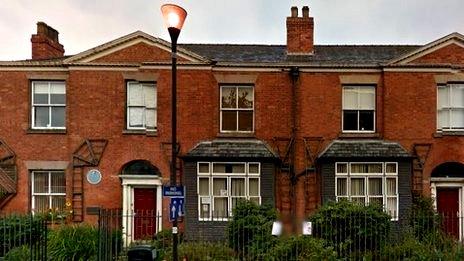Suffragette Emmeline Pankhurst to get Manchester statue
- Published
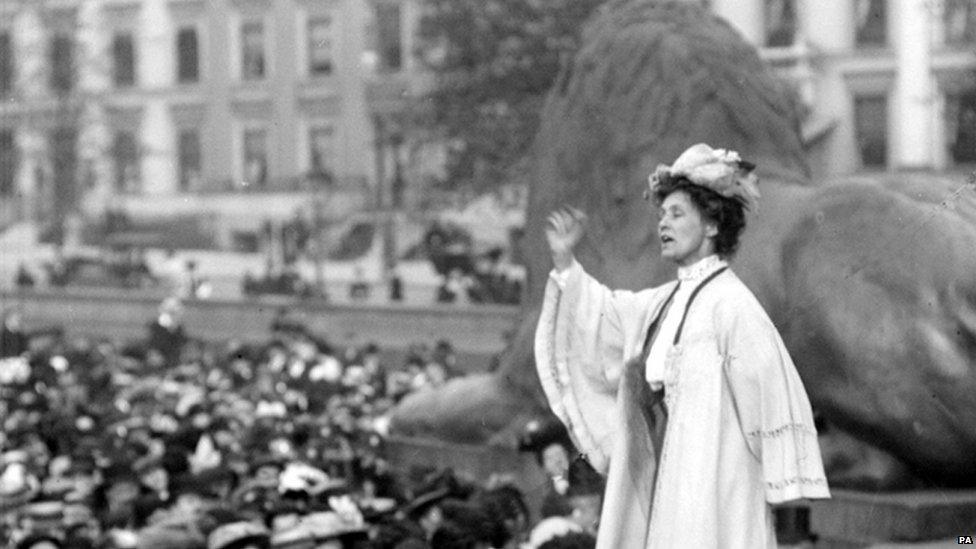
Emmeline Pankhurst was instrumental in the movement for women to get the vote
Women's rights activist Emmeline Pankhurst is to be the first woman to get a statue in Manchester for more than 100 years following a public vote.
The leader of the suffragette movement, who was born in the city, gained over half the votes in the WoManchester Statue Project poll.
A statue of Queen Victoria in Albert Square is currently the only woman portrayed across 17 city centre works.
The statue, which will be privately funded, is due to be unveiled in 2019.
Mrs Pankhurst beat five other women shortlisted to be commemorated with 56% of the 5,301 votes cast.

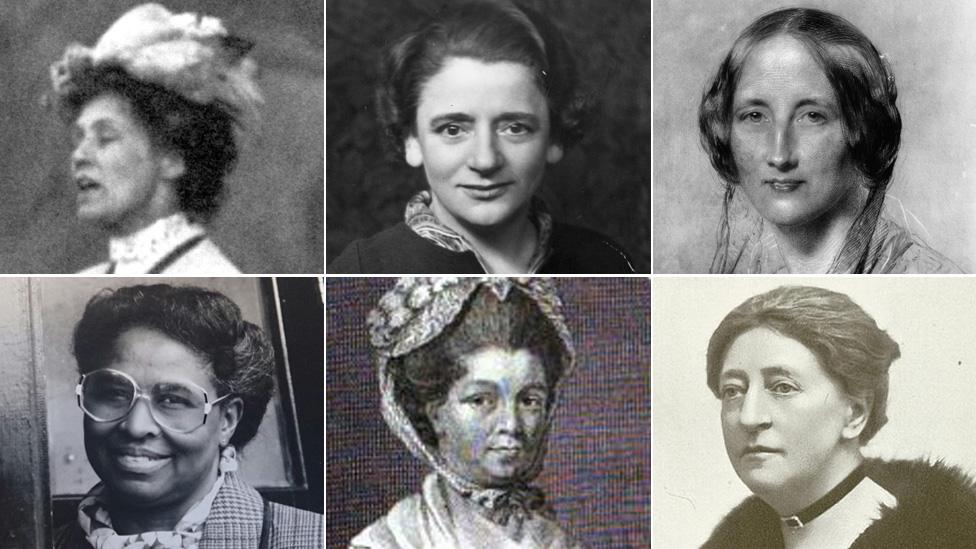
The shortlist featured (from top left to bottom right) Emmeline Pankhurst, Ellen Wilkinson, Elizabeth Gaskell, Louise Da-Cocodia, Elizabeth Raffald and Margaret Ashton
Other shortlisted candidates:
Ellen Wilkinson Born in 1891, a Labour MP, co-organised the 1935 Jarrow March and campaigned on mental health issues
Elizabeth Gaskell Novelist who's works included North and South, Wives and Daughters and Cranford, which was based on her life in Knutsford
Louise Da-Cocodia Moved from Jamaica to the UK in 1955 and was the first black senior nursing officer in Manchester. She also campaigned against racism
Elizabeth Raffald - Born in 1733, was housekeeper at Arley Hall and Gardens in Cheshire and wrote The Experienced English Housekeeper, for which she sold the copyright to her publisher for £1,400 - about £200,000 today
Margaret Ashton Campaigned for women's right to vote and was the first woman city councillor in Manchester

Didsbury councillor Andrew Simcock, who started the project, said none of the funding for the £200,000 memorial would come from Manchester City Council's budget.
Mrs Pankhurst, who was born in 1858, was instrumental in the movement for women to get the vote and founder of the Women's Social and Political Union.
The group held its first meeting at Mrs Pankhurst's Chorlton-on-Medlock home on 10 October 1903. The building has since become a museum and community centre named in her honour.

Votes for women:
•Organised campaigns for women's suffrage began in 1866
•When Parliamentary reform was debated in 1867, John Stuart Mill proposed an amendment to give the vote to women on the same terms as men but it was rejected by 194 votes to 73.
• Women's rights activists were involved in direct action, including chaining themselves to railings and jail hunger strikes
• In 1918 the Representation of the People Act gave women over 30 the vote, which was extended to all women over the age of 21 in 1928.

Manager Rachel Lappin said she was "thrilled to bits [that] the legacy of Mrs Pankhurst's campaign and the movement she led lives on".
The other nominees were author Elizabeth Gaskell, anti-racism campaigner Louise Da-Cocodia, Manchester councillor Margaret Ashton, businesswomen and writer Elizabeth Raffald and MP Ellen Wilkinson.
- Published21 October 2015
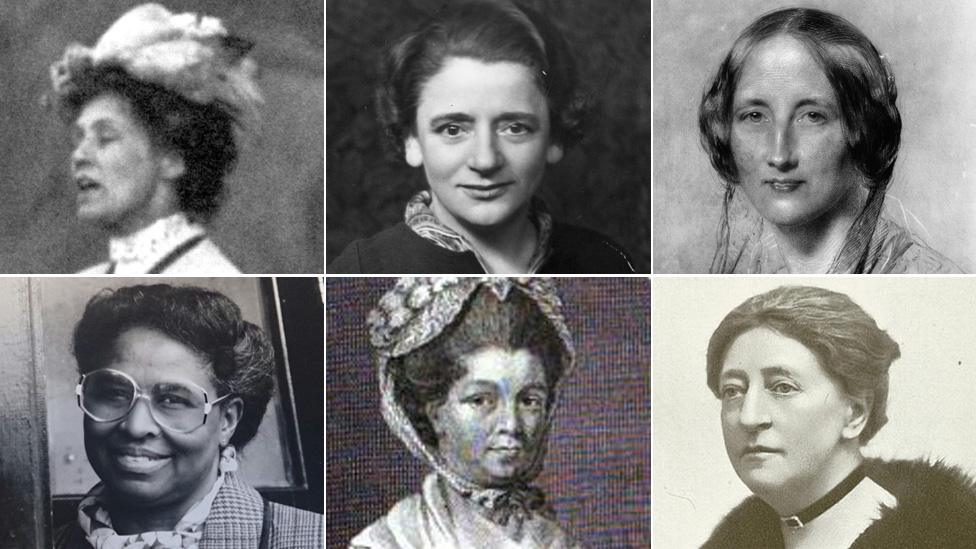
- Published3 May 2015
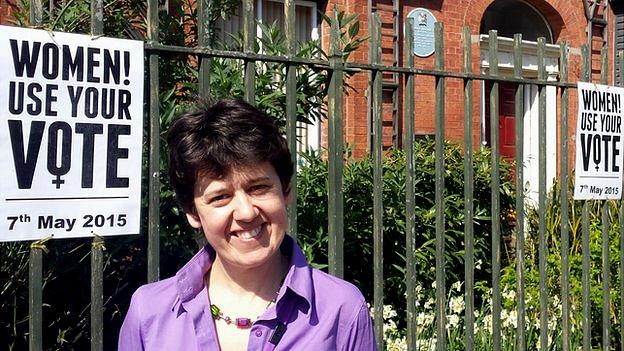
- Published9 July 2014
